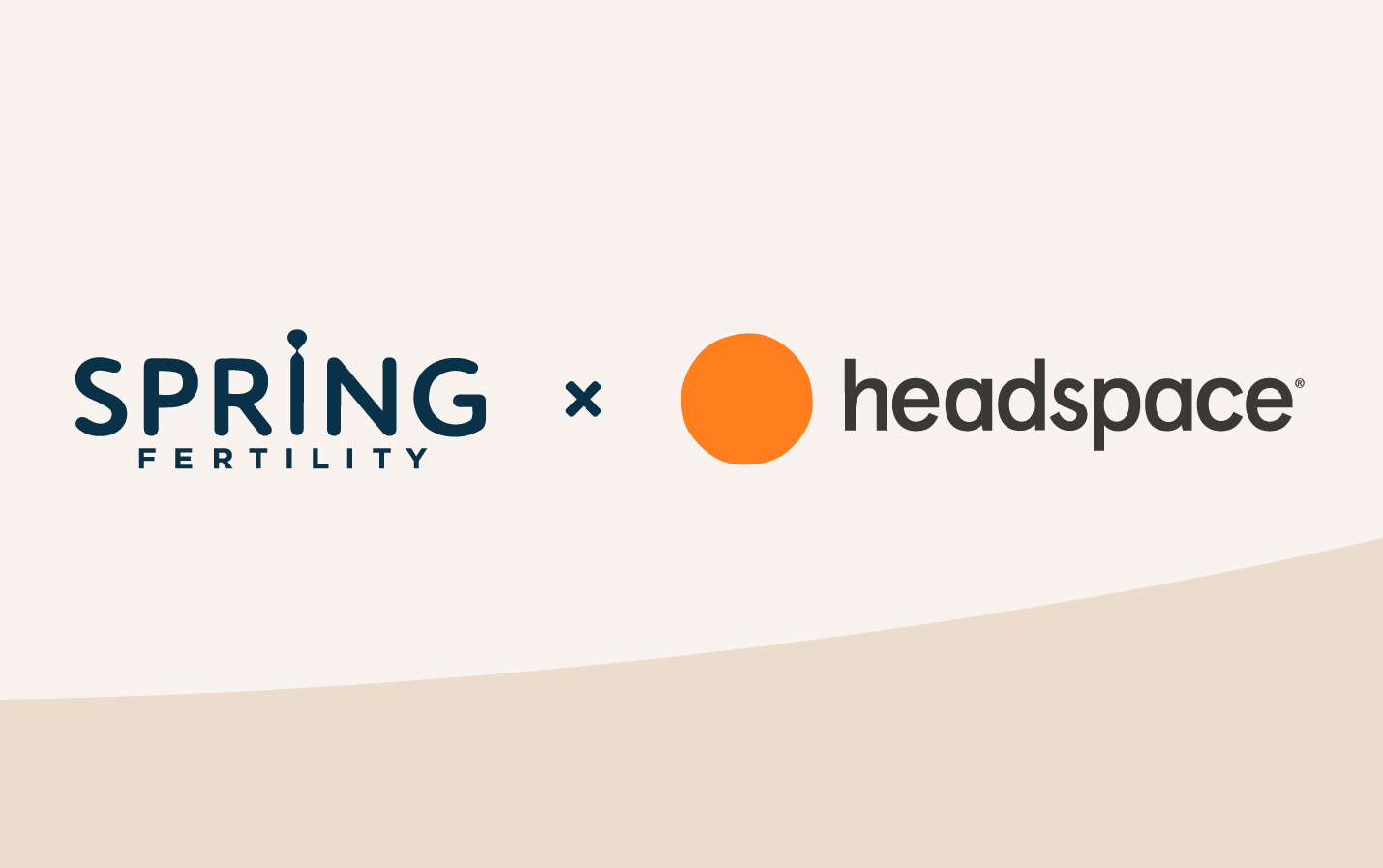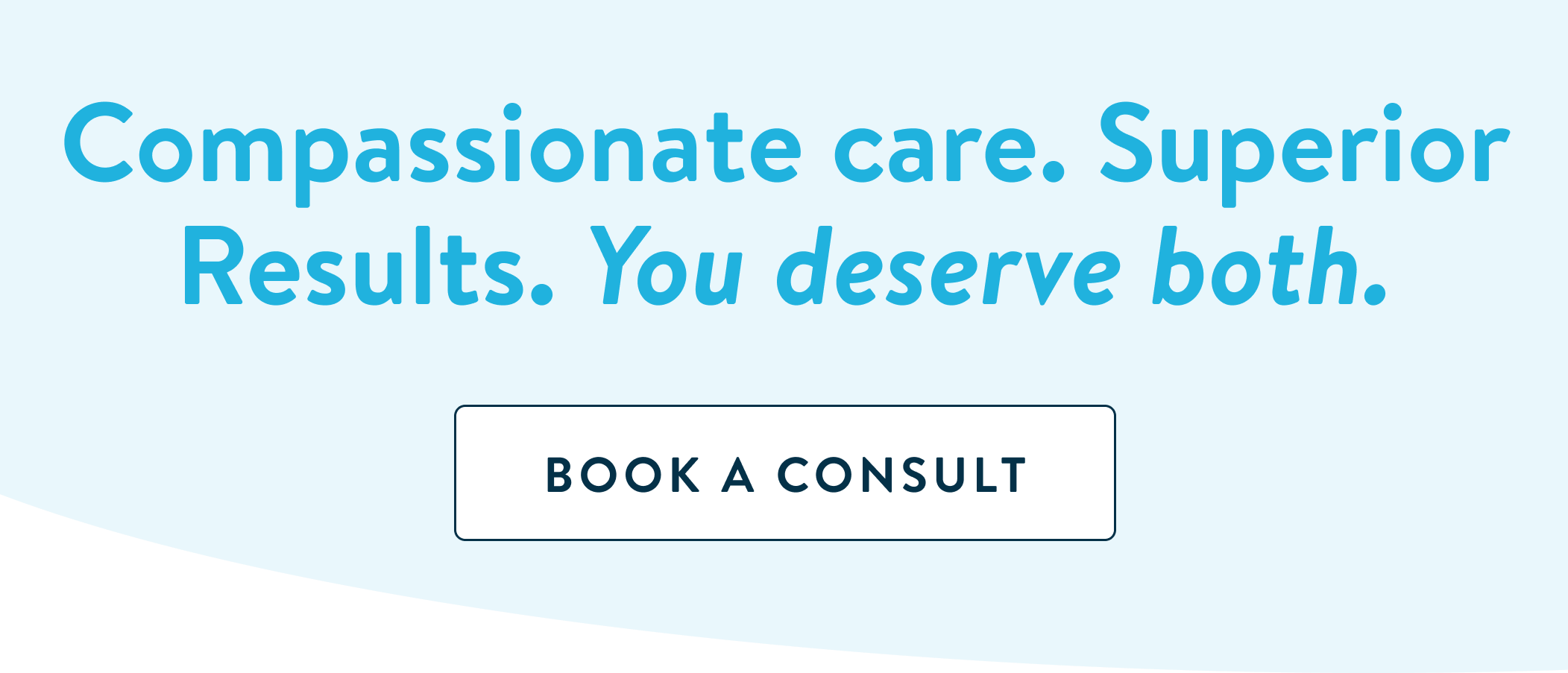
Fertility Preservation | IVF Explained
Spring Fertility Teamed Up With Headspace for ‘Support for Your Fertility Journey’ Content Collection
At Spring Fertility, we understand that fertility journeys can be complex and unpredictable, which is why we're proud to have teamed up with mental health platform Headspace to create a new “Support for your Fertility Journey” content collection for those navigating challenges on the road to conception.
One in six couples in the United States struggle to conceive, which means fertility treatments are becoming a much more common part of families’ stories. As awareness around fertility challenges becomes more widespread, so does a need for resources to better support what can be an isolating and emotional journey for many.
The National Institute of Health found that 25-60% of people experiencing fertility challenges report psychiatric symptoms with heightened levels of anxiety and depression significantly higher than controls. With the overturn of Roe v. Wade and the resulting state-by-state pullbacks on in vitro fertilization (IVF) access and other reproductive rights, many people report feeling even greater symptoms of depression and anxiety.
Dr. Julia Conant, Spring Fertility’s in-house clinical psychologist, says “It is easy to understand why most patients report impacts to their quality of life or sense of well-being while undergoing fertility treatments – there is the physical toll of multiple medications and/or procedures, the time commitment involved, and the profound uncertainty that individuals and couples must endure about the “if,” “how” and “when” related to their goals to become parents. Managing these stressors alone can take a significant emotional toll, and in addition, so many fertility patients are grieving losses (pregnancy losses, losses of a sense of safety or security about the future, losses of feelings of freedom or agency, etc.) along the way. These stressors, traumas and losses can compound over the course of ongoing treatments and lead to mental health challenges with mood, sleep and anxiety. I always encourage individuals and couples to proactively seek mental health support in the fertility treatment process.”
The data and research shows us that proactive mental health support is crucial, and can greatly increase patients' feelings of agency and wellness, and improve overall quality of life, in this treatment process.
Dr. Conant adds, “The data and research shows us that proactive mental health support is crucial, and can greatly increase patients’ feelings of agency and wellness, and improve overall quality of life, in this treatment process.”
The “Support For Your Fertility Journey” content collection features guided meditations and mindfulness exercises, audio conversations, and a docu-style video series with practical insights on:
- Listening to the mind and body: Learn mindfulness and compassion techniques to help cultivate trust in your body and tenderness for your journey.
- Coping with feelings of isolation: Discover ways to navigate loneliness and isolation while remembering you are part of a shared human experience.
- Holding space for grief: Practice ways to acknowledge and normalize the losses that can be part of a fertility journey without being swept into shame and guilt.
- Uncertainty around fertility: Develop ways to build resilience, patience, and strength through your fertility journey.
- Self-care and fertility: Lean into self-care practices that provide moments of respite and from the emotional and physical overwhelm.
“After my third miscarriage, it was incredibly tough not to fall into a sea of self-blame and regret. I began to mourn the loss of my dream of becoming a mother and having the family I once envisioned. The self-blame was crippling,” said Rosie Acosta, Headspace Meditation & Mindfulness Teacher. “Needing a break from the merry-go-round of guilt, confusion and negative self-talk, I decided to lean into uncertainty and discomfort and become friends with the normally isolating emotions. Through mindfulness and meditation, I was able to ground myself in the present to let go of resentment, grief, and heartbreak associated with my fertility journey. We developed this collection in partnership with leading mental health experts to help others going through similar experiences.”
Our hope is that in addition to meditations to support each stage of the fertility journey, hearing stories and reflections from individuals who have also navigated that path to parenthood will remind those seeking support that they are not alone. “The road to conception and having a family isn't easy for many people – in fact, it can be a long, expensive, and painful rollercoaster,” said Eve Lewis Prieto, Director of Teaching, Headspace. “As a meditation and mindfulness teacher, I’ve spent years teaching others how to take care of their mind and body, cultivate a balance of mind, and hold themselves with compassion and tenderness when going through tough times. While facing a huge unknown myself, I wanted to share meditation practices and mindfulness techniques that have helped me on my own journey.”
In partnering with Headspace on this collection, our hope is that these meditations and conversations can serve as another resource so that more people navigating fertility journeys can feel seen, supported, and not alone.
Dr. Nicole Yoder, a fertility specialist at Spring Fertility New York City, says “Infertility can have profound effects on mental health including increased rates of anxiety and depression. Because of this, it is incredibly important that individuals and couples navigating infertility have access to mental health support and resources. At Spring Fertility we strive to create an environment where people feel heard and cared for both physically and emotionally. This includes access and referral to mental health providers as well as support groups, knowing that mental health is an integral part of your experience and wellbeing. In partnering with Headspace on this collection, our hope is that these meditations and conversations can serve as another resource so that more people navigating fertility journeys can feel seen, supported, and not alone."
